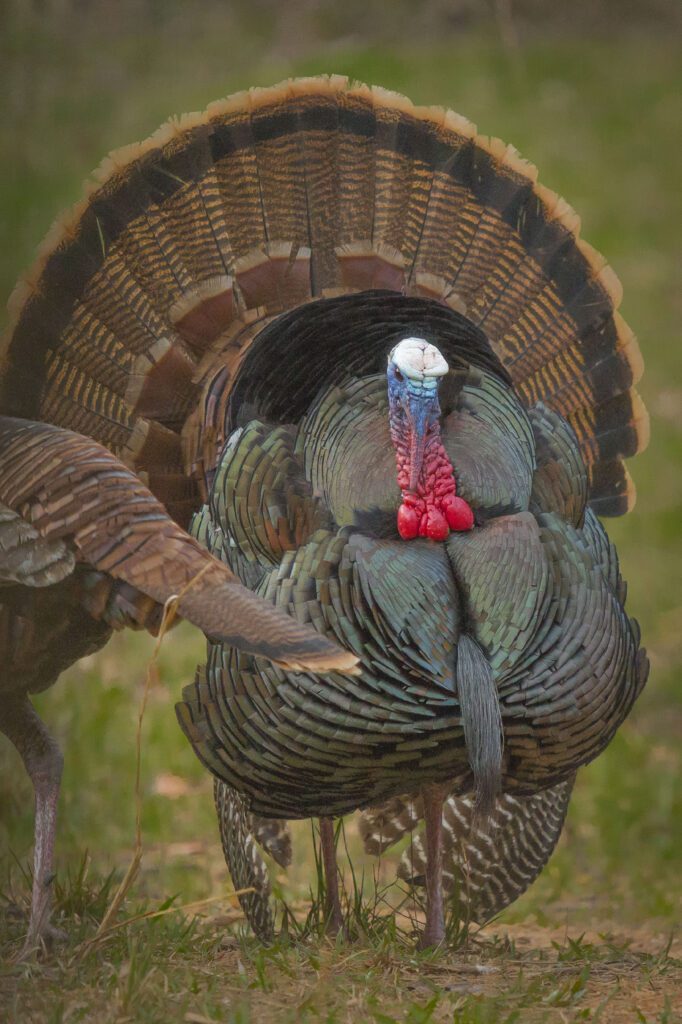
For the past few years, it was looking like Louisiana’s turkey hunters would have to reluctantly put away their shotguns and turkey calls and go back to doing what we were doing a couple of decades ago. It seemed the only outdoors springtime activity would be fishing. All the statistics pointed to a steady decline in turkey populations, back like it was when only a handful of local diehards, like Blue Parkman, Pete Brister and L.W. Hamner went out morning after morning hoping they might find a turkey track or actually hear a gobble.
Then something happened. According to a press release by the Louisiana Department of Wildlife and Fisheries (LDWF), Louisiana’s turkey hunters enjoyed the best year by far from a harvest standpoint in 2024. They reported taking 3695 birds during the recently completed hunting season.
This year, for the first time since the harvest reporting was mandated in 2009, turkey hunters reported taking more than 3,000 birds. In fact, the past three seasons were the best ever reported since harvest data was compiled. Last year, an astounding 2833 birds were taken but for the 2024 season, the take was 30.4 percent higher than that.
What happened? Why did the harvest data take a jump in the right direction over the past three years? In 2018, the LDWF staff recommended that the Louisiana Wildlife and Fisheries Commission push back the opening date for turkey season to give gobblers and hens more time to take care of the business of breeding and putting more baby turkeys on the ground.
Cody Cedatol is Turkey Program Manager for LDWF and he believes that giving turkeys more time to do what they naturally do in spring before hunters take to the woods played a big role in the improvement of the number of gobblers being taken. “This clearly indicates increasing turkey populations in many areas of the state and provides additional evidence that the season change is working,” said Cedatol. “Many hunters indicated increased encounters with jakes (juvenile turkeys), which is an indicator of good reproduction. Similar reports were noted in 2020, 2021, 2022 and 2023.”
Jason Lupardis, native Kentuckian, has been named CEO of an up and coming organization, Turkeys for Tomorrow, that has the goal of trying to pinpoint problems nationwide having to do with the overall decline in wild turkey populations around the country.
We visited with Lupardis recently to ask about Turkeys for Tomorrow and get his take on what he sees as some of the main problems and why he believes Louisiana has beat the odds, in a manner of speaking, by having such good results over the past 2-3 years while other states continue to struggle.
“Reports from brood surveys of Louisiana turkeys have shown a higher poult-to-hen ratio which means that there has been good production of young turkeys. That is partly due,” said Lupardis,” to the pushing back opening day to allow gobblers and hens to breed.” To find out how Turkeys for Tomorrow works, visit turkeysfortomorrow.org.
He also noted a new regulation Louisiana will implement beginning the 2025 season that will protect young gobblers. “The new regulation means only youth hunters may take one jake per season. For remaining hunters, only mature gobblers may be taken and jakes will be off limits. A mature gobbler is described as an adult with tail feathers the same length, beard longer than 6 inches and spurs at least ½ inch long,” he said.
It is troubling to realize that in so many areas, Louisiana is at or near the bottom in rank. However, when it comes to wild turkeys, our state because of more restrictive regulations, is setting standards that hopefully will see our wild turkey population continue to thrive.
 fgazette.com Community news site for Union Parish Louisiana
fgazette.com Community news site for Union Parish Louisiana